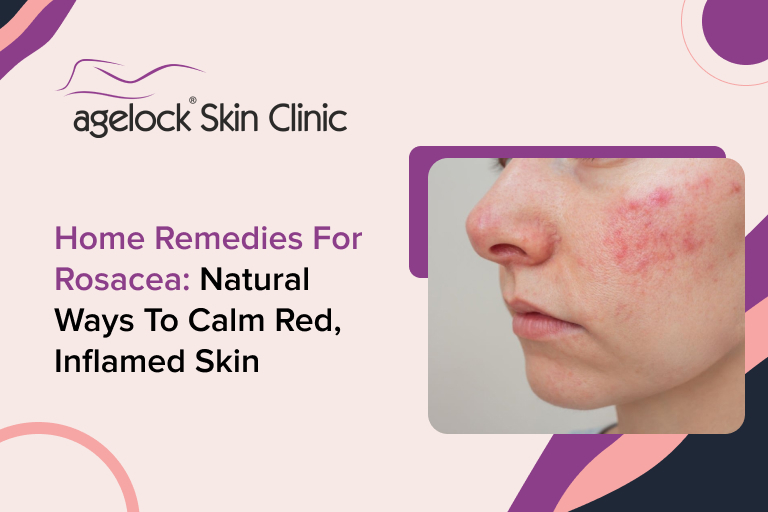Some common skin issues people often encounter are dark marks, also known as hyperpigmentation; common causes of these marks include acne, sun exposure, hormonal changes, and skin injuries. While they may seem harmless, they can negatively impact someone’s self-worth and self-acceptance. Fortunately, there are various techniques for fading them out and, at times, eradicating them in the long run. This blog post will guide you through simple procedures that can assist you in lightening the dark spots on your face. It will also cover practical tips, natural solutions, and preventive measures. Following these steps will lead you to an even complexion within no time, thus boosting your confidence like never before.
Dark Marks: What Are They?
Before going through the procedures of looking for solutions for dark marks, one should understand the actual meaning of dark marks. Post-inflammatory hyperpigmentation, more commonly known as dark marks, are skin patches darker than the rest of the skin. All such discoloration is due to inflammation, UV exposure, or any other form of injury that stimulates melanocyte production by the body for standard skin colour, unlike freckles and age spots, which are caused by disordered melanocyte distribution, hence colour uniformity.
Common Reasons for Dark Marks on the Face
Understanding the causes of dark marks can help you prevent them in the future. Here they are:
Acne Scars
Skin inflammation tends to bring about scars, which may develop into dark spots. Acne, when healed, has a mark because of the skin’s healing process, especially if the acne is significant or if one has the habit of touching the pimples.
Improper Skincare Routine
Cutting your skin with sharp objects, using low-quality products that negatively affect your skin, or not following a proper skincare regimen can lead to issues. For example, using certain products that cause inflammation can result in pigmentation changes as the skin reacts to the inflammation.
Sun Exposure
When the skin is exposed to the sun with no protection, one is likely to stimulate melanin production, thus forming dark marks. They trigger melanocytes; these cells are responsible for the synthesis of melanin, and in return, they increase production.
Hormonal Changes
This condition can occur due to pregnancy, contraction of pills, especially the anti-contraceptive pills, allergies, or hormonal changes. This is because hormones that can stimulate melanocyte activity vary at different periods of the cycle; therefore, such an occasion is likely to cause a change in skin colour.
Skin Injuries
Scars are the common outcome of various injuries that may occasionally happen on any part of the skin: the cut, burn or even the bite of an insect, which also results in dark spots on the skin as the tissues of the derma heal. Melanosis is associated with an increase in the enhancement of melanin; thus, they are involved in the healing process and may cause pigmentation.
Preventive Measures: How to Avoid Dark Marks
Preventing dark marks is more accessible than treating them. Here are some practical tips to help you avoid them:
Use Antioxidants
For this reason, you ought to incorporate foods or products loaded with antioxidants like vitamin C into your regimen.
Avoid Picking at Your Skin
Do not scratch pimples or wounds; it is wrong to tease them off. Picking results in scarring, and the scar is usually in the skin’s colour or even darker compared to the surrounding skin.
Stay Hydrated
Remember to drink plenty of water and ensure you eat a well-balanced diet. Drinking water and consuming the right foods assist in skin health and keep off conditions that cause pigmentation.
Regular Sunscreen Use
Before you go out, the standard practice is to use sunblock with no less than thirty factors. As well as being used for these purposes, sunscreen offers protection from the sun’s ultraviolet rays, which may cause dark pigmentation on the skin.
Gentle Skincare Routine
Mild soaps and creams that do not engender the formation of comedones and do not cause inflammation of the skin. Thus, we find skin care has the important function of maintaining skin integrity and preventing inflammation that leads to the appearance of pigmentation.
Effective Home Remedies to Reduce Dark Marks
Natural remedies can be a gentle and effective way to reduce dark marks on your face. Below are some simple treatments you can try at home:
Lemon Juice
These are recognized for their ability to lighten the skin because of being rich in vitamin C.
- Direct Application: Use lemon drop ← for 10 mins, and rinse with tepid water.
- Lemon And Honey Mixer: Honey can be added to lemon juice to dilute it before applying it to any dark areas that need soothing and lightning at the same time.
Frequency: These remedies should be used twice or thrice weekly for the best results.
Lemon Juice is adequate, though harsh, on sensitive skin; hence, a patch test is always necessary.
Aloe Vera
Naturally soothing and healing are properties of aloe vera, thus making this herb among the most effective treatments for hyperpigmentation.
- Pure Aloe Vera Gel: Apply these directly onto hyper-pigmentations, then wipe them off in the morning or at any other time that feels good after overnight use.
- Aloe Vera and Vitamin E: Mix aloe vera gel with several drops of vitamin E oil as an alternative for more skin healing.
Aloe Vera is an ideal agent against mild dark spots on skin surfaces and can be used every day until all such spots disappear entirely.
Turmeric
Turmeric contains anti-inflammatory and antioxidant properties that facilitate hyper-pigmentation removal and melanotic spot elimination.
- Turmeric Paste: This paste is made by mixing fresh turmeric powder with either lemon juice or water in a bowl. The dark marks are supposed to be left with this for fifteen minutes before rinsing.
- Turmeric and Yogurt Mask: Combine the two ingredients mentioned before; that is, put yoghurt in a bowl and apply it on your face where there are oily spots so that it may absorb all dirt from there. Leave it on your face for around twenty minutes, then wash it with clean water.
As mentioned, turmeric can help treat these brown spots, but bear in mind that its dye might remain on the skin for several more hours.
Potato Slices
Potatoes contain enzymes that can help lighten dark marks over time.
- Raw Potato Slices: Scrub raw potato on the black scars in particular. Rinse after fifteen minutes only.
- Potato and Honey Mask: Grate one potato, add some honey, then apply this mixture on the face; allow it to stay there for twenty minutes before washing it all out.
Using potatoes regularly can gradually reduce the appearance of dark marks, revealing clearer skin.
Conclusion
Dark marks are undesirable and can be removed entirely from the face. In either way that one chooses to follow, that is either natural, buying from the supermarket or hiring from a professional, then the thing to do is to be consistent and persevere. This will also stop new marks from developing on your skin, especially if you have been reckless with your skincare regime. Only by being religious with the regular treatments must one scrub away the scarring, the blackish and bumpy surface, to be confident with the skin again.








